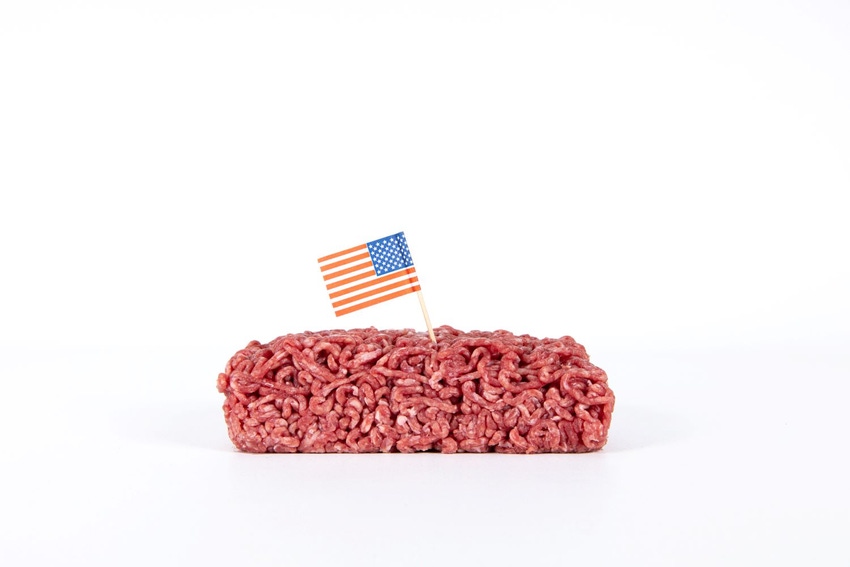How would a Democrat-controlled White House and legislature affect ag?
Here’s a look through a conservative lens at the major issues in the Democratic Party’s platform.
October 29, 2020

After nearly four years of a Trump Administration, we know its record and approaches. But what would a Biden/Harris win mean and what would the Democrats favor if they gain more power in Congress?
How much government to have in agriculture is a battle waged for decades. Some of the things the Democrats have discussed would affect agriculture as a business, some affect consumers and some would affect agriculture directly.
Taxes
Taxation is a big issue as it affects economic growth, as Trump and Congress demonstrated with the tax reform in 2017. Biden’s position has been that the Trump tax cuts hurt the economy by reducing federal tax collections. Actually, tax receipts grew by only 2.2% in the two years before the cuts and 5.3% in the two years after the cuts.
As for corporate tax collections, in the two year before the cuts, corporate tax collections dropped 25.4% but grew 11.4% after the cuts. During the same time periods, business investment grew 4.7% before and 11.9% after. Gross Domestic Product (GDP) grew by 5.9% in the two years previous and 9.7% after. And median household income advanced 6.8% in 2019 alone. All this data is from Ernie Goss, professor of regional economics at Creighton University.
Early in the campaign, Biden said he wanted to raise corporate taxes again but not to the previous 35% level. Harris wanted to roll back the cuts to the old level.
From another perspective, Lawrence B. Lindsey, a former Federal Reserve governor and White House advisor in 2001-2002, pointed out how different economic policies affect unemployment and growth. In December 2016, the Fed predicted unemployment of 4.5% for 2017 and 4.5% for 2018, evidently figuring that further reductions were impossible. Instead, 2017 ended with 4.1% unemployment, 3.9% in 2018 and dropped to 3.5% in 2019, the lowest in decades. (“The Trump Boom Is Real,” Wall Street Journal, 10/26/20).
As for economic growth, the Fed estimate hit low for all three Trump years: 0.7 GDP points too low for 2017; 0.5 for 2018; and 0.4 for 2019. During the Obama years, the Fed overestimated growth in 2009 for 2011, estimating too high by 2.6 points, predicted 1.7 points too high in 2010 for 2011 and 2.5 points high in 2012. The Fed’s models overestimated the potency of fiscal and monetary stimulus and underestimated the benefits of reducing the cost of capital and deregulation, Lindsey said.
As for capital gains, the Democrats in general want to increase them again. Since they tax investment and stocks, they contend that lower rates benefit the “wealthy.” However, small businesses, including agriculture, plus pension, stock and insurance funds benefiting many middle- and lower-income Americans get caught up in that net, too.
Experts have projected a Biden/Harris administration would need over $5 trillion in new spending over 10 years. Biden has made it plain that he wouldn’t raise taxes on anyone making less than $400,000 per year and he said he wanted to raise the top income tax rates to 39.5%. However, it would seem unlikely to raise the billions he said he wants to spend by only taxing upper income people.
Economist Kevin Hassett, who did the work before he joined the Trump Administration, said his research showed that cutting corporate taxes would raise wages for workers. That’s largely because lower corporate taxes incentivize growth and expansion, which require more workers, which puts upward pressure on wages. The tax cuts proved him right, as the GNP grew and workers’ wages improved more than they had in decades. Hassett was former chairman of the Council of Advisers and fellow at the American Enterprise Institute.
Then there’s climate change
Climate change is one of those areas affecting everyone, with agriculture being especially targeted. Kamala Harris made it plain in a 2019 CNN climate change town hall in California that she thought Americans should reduce red meat consumption, that the food pyramid should be changed and that certain eating behaviors should be changed to reduce impact on the environment (Kamala Harris Urges Americans to Reduce Red Meat…, Newsweek, 09/04/19). So, she opposed red meat for climate and dietary reasons.
Other Democrats favor federal antitrust laws or merger moratoriums, in opposition to what they term “industrial” agriculture. Many favor parts of New Jersey Senator Corey Booker’s Farm System Reform Act that would phase out “industrial agriculture” in a couple decades.
The Democrats in general have opposed the Trump Administration’s rollback of environmental regulations and it’s reasonable to assume that a Biden administration would certainly re-institute many of the Obama-era regulations on water (WOTUS), land use, grazing, energy and mining development, pipelines, etc. Regulation on antibiotic use and other technology would likely come under possible restrictions. ESA reforms that are in the works would almost certainly be killed off. Biden has said he favors a carbon tax, which would increase operating costs and cut income from energy development for farmers and ranchers. Trump has also been working to relax the CAFE standards, whereas Democrats favor increasing the mileage requirements, raising the cost of trucks.
Healthcare, other issues
Biden has favored additional incremental steps, adding to the Affordable Care Act program with a public option offered. The program claims to have provided healthcare insurance to 20 million citizens. But something like 160 million Americans have private health insurance already that would likely be eliminated under a government, single payer program. The last Census said 92% of Americans had health insurance, 68% having private health insurance.
Certainly cattle industry people feel some things need to be done to cut the cost of healthcare. But Congress hasn’t even been able to do obvious things, like letting insurance companies sell across state lines.
Agriculture needs more legal labor, regardless of the country. When it comes to illegal immigration, Harris has said she favors making entering the country illegally a civil offense rather than a criminal one. She also opposes any more funding for a wall.
Some of the lifting of government burdens on agriculture has come from less expansive interpretations of statutes by federal courts and the Supreme Court.
Election Day is next Tuesday. We encourage you to fulfill your civic duty.
Dittmer is a longtime beef industry commentator and executive vice president of the Agribusiness Freedom Foundation. The opinions of the author are not necessarily those of beefmagazine.com or Farm Progress.
About the Author(s)
You May Also Like




.png?width=300&auto=webp&quality=80&disable=upscale)
